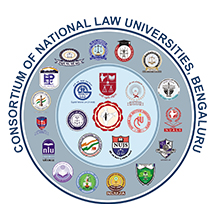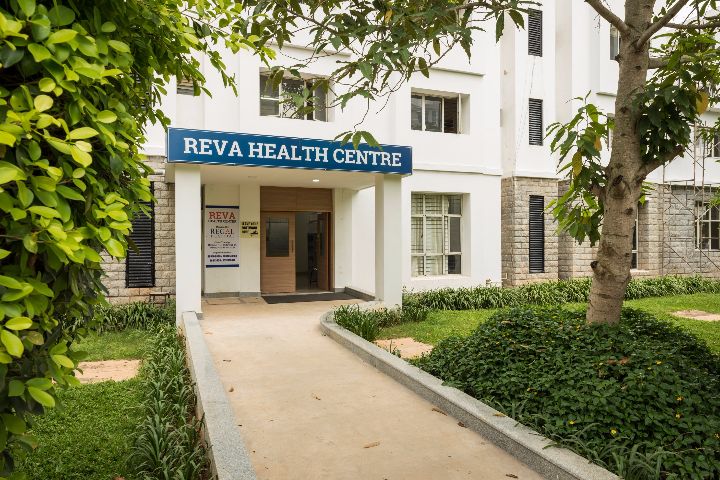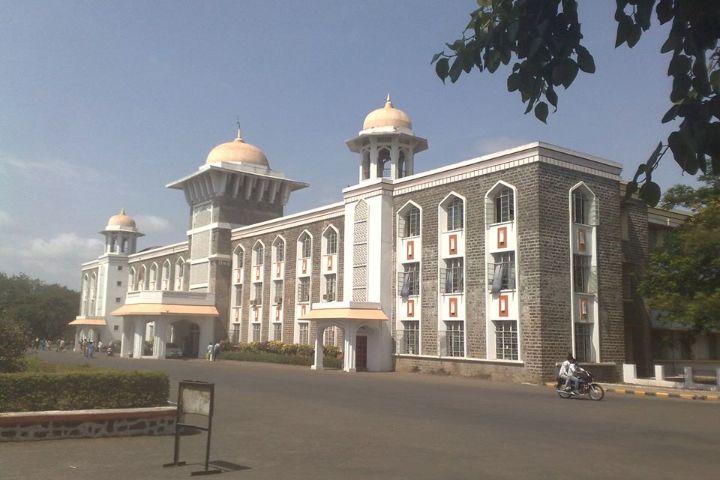
Criminal Law Course Details - Fees, Subjects, Syllabus, Duration, Eligibility, Career Scope
Degrees offered: BS, B.A., L.L.M, M.S, B.A.(Hons)
What is Criminal Law
Criminal Law is a branch of law that deals with crimes, their punishment, and the legal processes involved in maintaining law and order. It focuses on identifying unlawful acts, protecting individuals and society, and ensuring justice through fair trials and legal procedures.
This course helps students understand the principles of crime, evidence, investigation, and prosecution. It prepares learners to work in areas like criminal litigation, public prosecution, legal research, and law enforcement. With rising awareness of legal rights and justice systems, Criminal Law has become one of the most sought-after specialisations in the law field.
Students completing this course gain a solid understanding of criminal law and its real-world applications. The programme helps them build strong analytical and legal reasoning skills useful in various legal sectors. Graduates working in this field earn an average salary of around Rs. 4.8 LPA, depending on their skills and experience.
Criminal Law Course: Highlights
The Criminal Law course focuses on understanding laws, procedures, and principles related to crime and justice. It helps students build analytical and legal reasoning skills required in the legal field. Below are the key highlights of the Criminal Law course, including eligibility, duration, job roles, and career opportunities:
| Particulars | Values |
|---|---|
Branch Name | Criminal Law |
Criminal Law Degrees | |
Criminal Law Course Duration | UG: 3-5 years PG: 2 years |
Criminal Law Eligibility Criteria | UG: Completion of 10+2 in any stream PG: Graduation in law or a related field with a minimum 50 per cent aggregate. |
Criminal Law Admission Process | Admission Examination and Merit Scores |
Criminal Law Entrance Exam | UG: CLAT, SET SLAT, AILET PG: LSAT, CLAT PG, CUET PG |
Criminal Law Course Fees | Rs. 13,000 - Rs. 28.26 Lakhs |
Criminal Law Job Profiles | Criminal lawyer, Criminologist, Government Lawyer, Public Prosecutor |
Criminal Law Average Salary | Rs. 4.8 LPA |
Criminal Law Recruiting Companies | JP Morgan Chase Bank, Sairam Law Associates, Lawtendo, International Justice Mission, Space Consultants, Disha Law Firm, Universal Hunt, KPS Legal, RJ Cube Staffing Solutions PVT. Ltd., Adani Enterprises Ltd. |
Specialisation or Similar Ones
Criminal law offers a variety of specialisations and related fields that cater to diverse interests and career paths. Candidates can choose the specialisations based on their interests and future goals. Some of the popular specialisations offered in the field of Criminal Law are mentioned in the table below.
Juvenile Justice | |
White-Collar Crime | Forensic Science and Criminal Investigation |
Victim Advocacy | Human Rights and Criminal Law |
Top Private Criminal Law Colleges in India
Several private universities in India offer Criminal Law courses with modern facilities and strong placement support. The fees in these institutions are usually higher than in government colleges due to advanced infrastructure and practical learning opportunities. Below, we have listed some leading private colleges offering Criminal Law courses with their respective fees and Careers360 ranking.
| Top Colleges | Careers360 Ranking | Fees |
|---|---|---|
9 | Rs. 2.50 Lakhs | |
11 | Rs. 12 Lakhs | |
21 | Rs. 1.82 Lakhs | |
24 | Rs. 1.30 Lakhs | |
34 | Rs. 28.26 Lakhs | |
46 | Rs. 1.70 Lakhs | |
50 | Rs. 1.25 Lakhs | |
57 | Rs. 1.56 Lakhs | |
92 | Rs. 80,000 | |
99 | Rs. 2.50 Lakhs |
Note: The fee structure provided above can be for any particular Criminal Law course (Diploma/ Degree/PGD).
Top Government Criminal Law Colleges in India
Several government colleges in India offer undergraduate and postgraduate degrees in Criminal Law. These institutions are recognised for their affordable tuition, high-quality education, and rigorous academic standards. Government colleges also provide practical exposure and research opportunities. Below are some of the top colleges, as ranked by Careers360.
| Top Colleges | Careers360 Ranking | Fees |
|---|---|---|
USLLS New Delhi | 25 | - |
28 | Rs. 1.05 Lakhs | |
42 | Rs. 25,000 | |
61 | Rs. 67,200 | |
75 | Rs. 13,980 | |
93 | Rs. 17,370 | |
- | Rs. 50,220 | |
- | Rs. 46,400 | |
- | Rs. 3.91 Lakhs | |
- | - |
Eligibility Criteria (UG & PG) of Criminal Law
Those interested in studying a course in Criminal Law need to fulfil the eligibility requirements set by the colleges. For undergraduate degrees, candidates are required to complete their 10+2 education. Similarly, a PG degree requires a Bachelor's degree in a similar or related discipline. Listed below are the eligibility details for Criminal Law courses at the undergraduate and postgraduate levels.
Criminal Law Eligibility Criteria for UG Courses
Candidates interested in pursuing Criminal Law courses at an undergraduate level must satisfy certain eligibility criteria. These admission requirements may vary from one institute to another. However, some of the most common eligibility conditions to get admission into the course are listed below:
- Students need to complete 10+2 in any stream from a recognised board in India.
- They must secure a minimum of 50 per cent marks (5-10 per cent relaxation for reserved category candidates).
- They should qualify in entrance exams such as CLAT, SET-SLAT, or AILET.
Top Entrance Exams for UG Courses
Aspiring candidates need to appear for certain entrance examinations before applying for admission. Some colleges may conduct university-specific examinations for Criminal Law courses. In the table below, we have provided the details of a popular examination for UG degrees.
| Exam Name | Exam Level | Conducting Body | Exam Schedule |
|---|---|---|---|
National | National Law University | ||
University | Symbiosis Law School (SLS), Pune | - | |
University | NLU Delhi |
Criminal Law Eligibility Criteria for PG Courses
Similar to undergraduate courses, for PG-level degrees, candidates have to meet some basic requirements. Every institute may have its own set of specifications. However, in the table below, we have mentioned the eligibility details of Criminal Law courses at PG levels.
- Students need to hold a bachelor’s degree in a related field from a recognised institute in India.
- They must have obtained at least 50 per cent marks (5-10 per cent relaxation for reserved category applicants).
- Popular PG-level entrance exams include LSAT, CLAT PG, and CUET PG.
Top Entrance Exams for PG Courses
Candidates who aspire to pursue their postgraduate degree must appear for certain entrance examinations. Those who have successfully cleared these entrance examinations can get admission depending on their cutoff marks. The popular examinations for Criminal Law are listed below.
| Exam Name | Exam Level | Conducting Body | Exam Schedule |
|---|---|---|---|
National | Law School Admission Council | ||
National | Consortium of National Law Universities (NLU’s) | - | |
National | National Testing Agency |
College Predictors VIEW ALL
Scope of Criminal Law in India and Abroad
Criminal Law is essential in India for maintaining justice and public order. The field is evolving, with increasing demand for experts in cybercrime, financial fraud, and human rights. It provides diverse career paths, allowing professionals to make a meaningful impact on legal systems at both national and international levels.
Criminal Law careers are influenced by global legal standards, offering opportunities in areas like international criminal law and collaboration with organisations such as the International Criminal Court. Advances in forensic science and technology have transformed investigations, creating a need for skilled professionals who can adapt and manage these modern legal challenges effectively.
Course Fees Criminal Law
| Minimum Fees | Maximum Fees | |||
|---|---|---|---|---|
| Private | Government | Private | Government | |
| UG | ||||
| PG | ||||
| DOCTORAL | ||||
| DIPLOMA | ||||
Course Subjects
This section covers the syllabus for undergraduate and postgraduate courses in Criminal Law. While the curriculum may vary across institutions, it generally includes subjects like Criminal Liability and Defences, Crimes Against Public Morality, Research Methods, and International Criminal Law. Below is the syllabus for UG and PG Criminal Law courses.
Criminal Law Syllabus for UG Courses
The undergraduate Criminal Law syllabus offers students a thorough understanding of legal principles, criminal procedures, and evidence, combining both theory and practical training. It covers subjects like Criminal Law I & II, Law of Evidence, and Drafting Clinics. Below are the B.A. LL.B. (Hons) integrated syllabus from NALSAR University of Law.
Semester 1 | Semester 2 |
Legal Methods | Law of Contracts – I |
Law of Torts | Criminal Law – I |
Law & Language | Family Law – I |
History-I / Economics-I | History-I / Economics-I |
Political Science-I / Sociology-I | Political Science-I / Sociology-I |
Moot Clinic | - |
Semester 3 | Semester 4 |
Law of Contracts – II | Law & Poverty |
Criminal Law – II | English – II |
Family Law – II | History-/Economics- |
History-/Economics- | Political Science / Sociology |
Political Science / Sociology | - |
Property Law | - |
Semester 5 | Semester 6 |
Law of Evidence | Company Law |
Constitutional Law-I | Constitutional Law-II |
International Law | Administrative Law |
Civil Procedure Code and Law of Limitation | Taxation |
Social Sc. Seminar | Social Sc. Seminar |
Semester 7 | Semester 8 |
Intellectual Property Law | Labour Law-I |
ADR Clinic | Drafting, Pleadings & Conveyance Clinic |
Elective Course | Elective Course |
Seminar Course | Elective Course |
Social Sc. Seminar | Seminar Course |
Semester 9 | Semester 10 |
Labour Law-II | Environment Law |
Ethics & Accountancy Clinic | Elective Course |
Elective Course | Elective Course |
Seminar Course | Seminar Course |
Criminal Law Syllabus for PG Courses
The academic curriculum of PG courses in Criminal Law equips students with the necessary knowledge and skills required to excel in the field. Some of the subjects offered in the postgraduate Criminal Law courses are Introduction to Criminal Law, Scope of Criminal Law, and Criminal Law Reform. In the table below, we have mentioned the syllabus from Gujarat University, Ahmedabad.
Semester 1 | Semester 2 |
Legal Theories | Judicial Process |
Indian Constitutional Law: The New Challenges | Law and Social Transformation in India |
Public International Law | Legal Research Methodology |
Penology | Principles of Criminal Law |
Privileged Class Deviance | Comparative Criminal Procedure |
Drug Addiction | Offences Related to Juveniles |
Semester 3 | Semester 4 |
Criminology | Doctrinal Research |
Laws of Evidence | Clinical Research Report |
Forensic Science and Criminal Investigation | Dissertation and Submission of Thesis |
Cyber Crimes | - |
Human Rights in the Criminal Justice System | - |
Police and Criminal Justice System | - |
Careers in Criminal Law
Careers in Criminal Law provide opportunities in legal practice, law enforcement, and advisory roles. Professionals handle case studies, legal documentation, and help ensure justice. Good analytical and communication skills are important for success. Below are some of the job roles in this field.
| Job Profiles | Description |
|---|---|
Criminal Lawyers represent clients in criminal cases and provide legal advice. They handle court proceedings, draft legal documents, and work to defend or prosecute cases effectively. | |
Criminologist | Criminologists study crime patterns, criminal behaviour, and societal impacts. They analyse data, conduct research, and provide insights to improve law enforcement and policy-making. |
Legal Consultant | Legal Consultants advise organisations on compliance with criminal law and regulations. They help mitigate legal risks and develop strategies to handle legal matters professionally. |
Public Prosecutor | Public Prosecutors represent the state in criminal trials. They prepare cases, present evidence in court, and work to ensure justice is served fairly. |
Forensic Experts examine evidence from criminal cases. They analyse physical, digital, or biological materials to support investigations and provide expert testimony. |
Upcoming trends
The field of Criminal Law is continually evolving to address modern societal and technological changes. Professionals must adapt to challenges like cybercrime, digital forensics, and global legal standards. Below are some current and upcoming trends in the field of Criminal Law that shape its practice and scope:
- Cybercrime and Digital Forensics
- Restorative Justice
- International Collaboration
- Legal Reforms and Decarceration
- Focus on Human Rights
- Protecting Privacy and Civil Rights
- Artificial Intelligence in Legal Investigations
- Environmental Crime Legislation
Job Profiles and Top Recruiters
Criminal law involves a wide range of job profiles, including those of judges, prosecutors, and defence lawyers who enforce and interpret the law within the legal system. To handle complicated and dynamic criminal concerns, legal practitioners can additionally specialise in fields like cybercrime, forensic analysis, and international law.
Top Recruiters
- JP Morgan Chase Bank
- Sairam Law Associates
- Lawtendo
- International Justice Mission
- Space Consultants
- Disha Law Firm
- Universal Hunt
- KPS Legal
- Adani Enterprises Ltd.
Average Salary
Careers in Criminal Law provide attractive salary packages, which can vary depending on experience, case success, and the organisation. Professionals with more expertise and notable achievements often earn higher pay. The table below highlights the average salaries for some common career options in the field of Criminal Law:
| Job Profiles | Average Salary |
|---|---|
Criminal lawyer | Rs. 3.8 LPA |
Criminologist | Rs. 4.5 LPA |
Legal Consultant | Rs. 7.2 LPA |
Public Prosecutor | Rs. 4.2 LPA |
Forensic Expert | Rs. 3.5 LPA |
Source: AmbitionBox and Glassdoor
Required Skillset for Criminal Law
A career in criminal law demands a unique and comprehensive skill set to effectively navigate complex legal issues and advocate for clients. Students who wish to enter the field must possess a combination of various skills and qualities that will help them to excel in their careers. Mentioned below are some of the important attributes and skills required for the Criminal Law field.
- Analytical Skills
- Critical thinking
- Strong Communication
- Research Proficiency
- Ethical Judgement
- Negotiation Skills
- Resilience and Stress Management
Course Curriculum for Criminal Law
The Criminal Law course covers essential subjects, teaching students the laws applicable in different jurisdictions. Students also develop legal communication skills, especially in English, to effectively represent clients in court. The curriculum emphasises courtroom conduct, professional ethics, and understanding legal policies to ensure justice is delivered responsibly.
Students learn how to handle cases legally, present facts and arguments, and defend clients effectively. The course also covers different penalties and punishments for crimes, and strategies for mitigating sentences through negotiation and plea. Practical application ensures graduates are well-prepared to represent clients and uphold justice in real-world legal settings.
Popular Criminal Law Entrance Exams in India
Frequently Asked Questions (FAQs)
Question: How is Criminal Law different from Civil Law?
Answer :
Civil Law deals only with the matters pertaining to domestic and commercial disputes that do not cause any bodily harm to anyone. Whereas, Criminal Law primarily deals with acts that harm society.
Question: Who are the top recruiters of Criminal Law courses?
Answer :
The top recruiters of Criminal Law course includes JP Morgan Chase Bank, Lawtendo, KPS Legal, RJ Cube Staffing Solutions Pvt Ltd, KPS Legal, Advani Enterprises Ltd.
Question: What is the average salary of a Criminal Law graduate?
Answer :
The average salary of a Criminal Law graduate depends on various factors such as the Location of the company, experience and qualification of the graduate. The average salary of a Criminal Lawyer, according to AmbitionBox, is Rs. 3.8 LPA.
Question: What are the required skills for a Criminal Law degree?
Answer :
Candidates must possess certain skills in order to do well in their academics and profession. These skills are Writing and Speaking Skills, Research and Investigative Skills, Legal Knowledge, Interpersonal Skills, Creative and Time Management Skills.
Question: What are the top entrance exams for UG and PG courses in Criminal Law?
Answer :
The top entrance exams for Criminal Law are CLAT UG, LSAT, CLAT PG, AILET. These entrance exams are very crucial for determining the candidates admission to the course.






.jpg)

.jpg)














